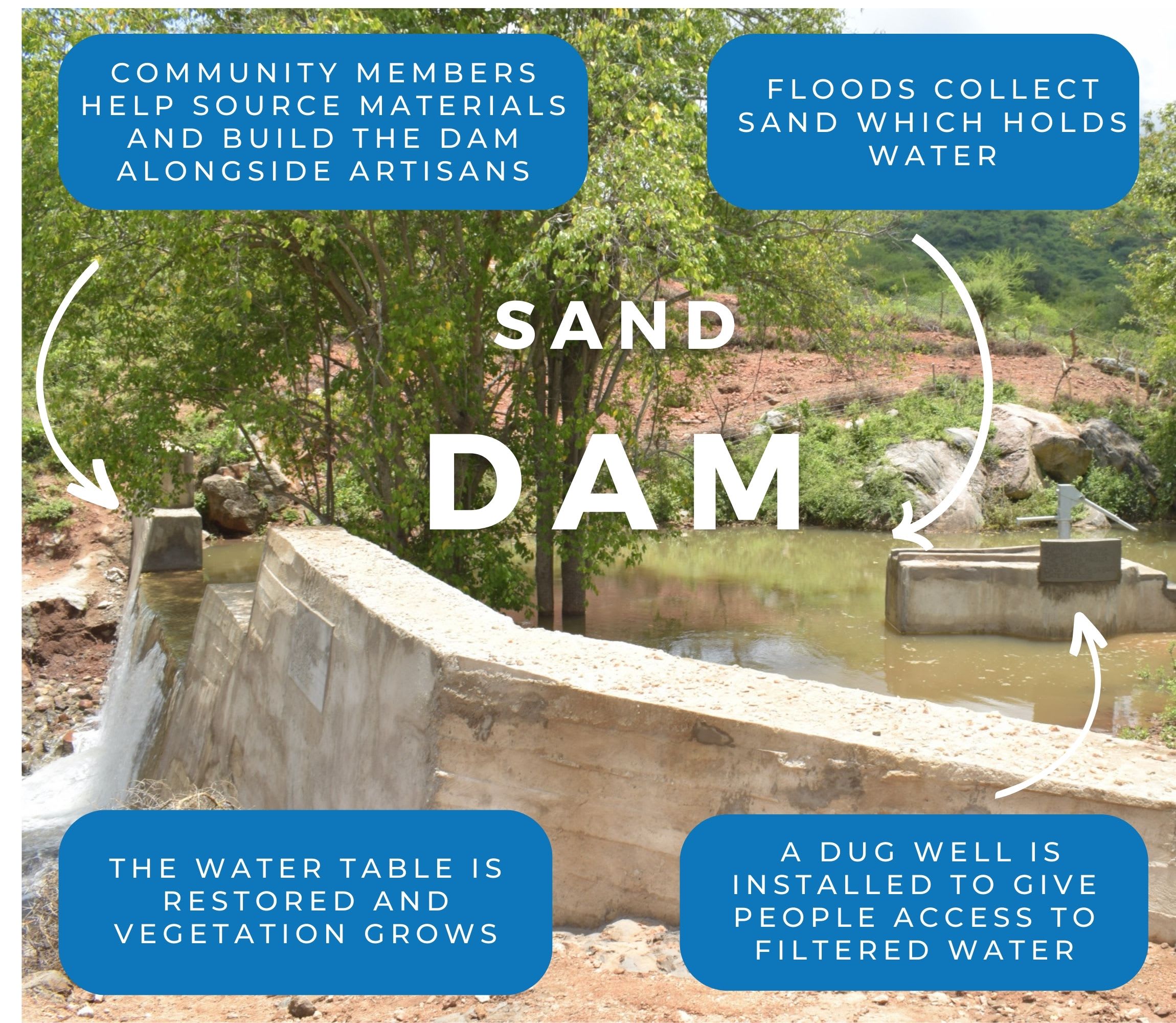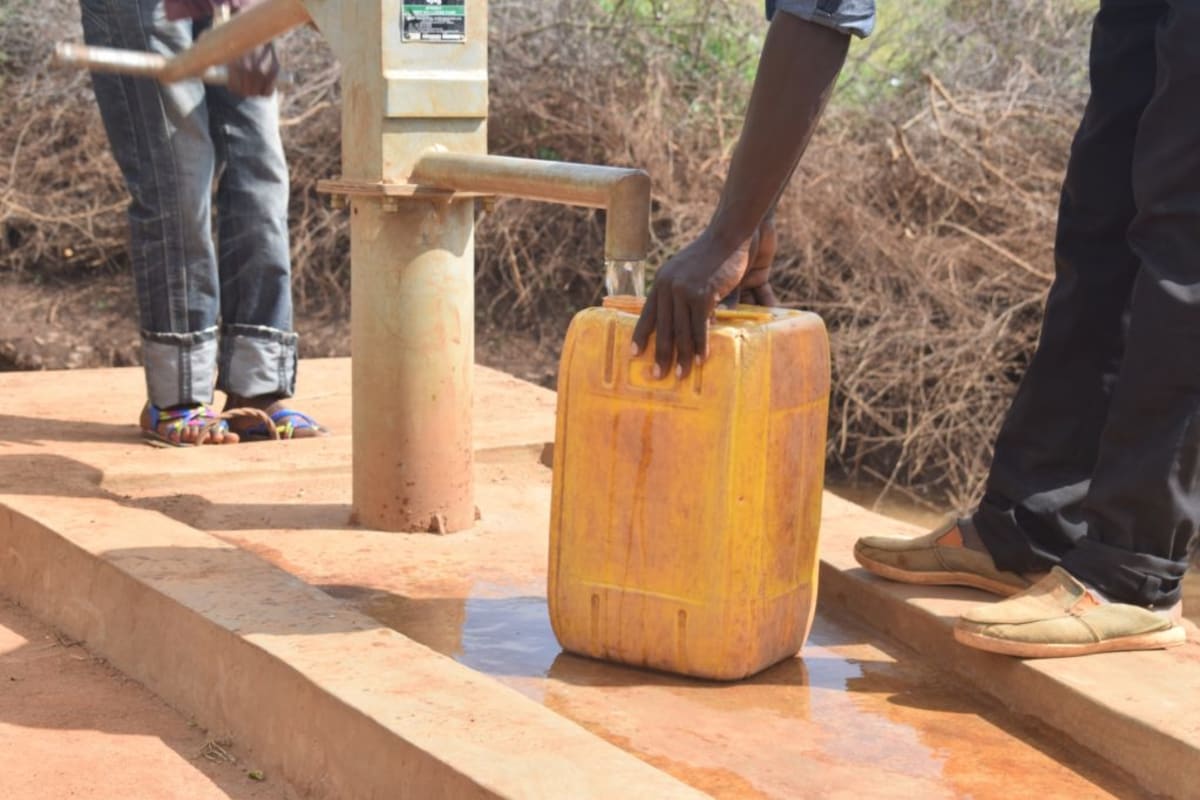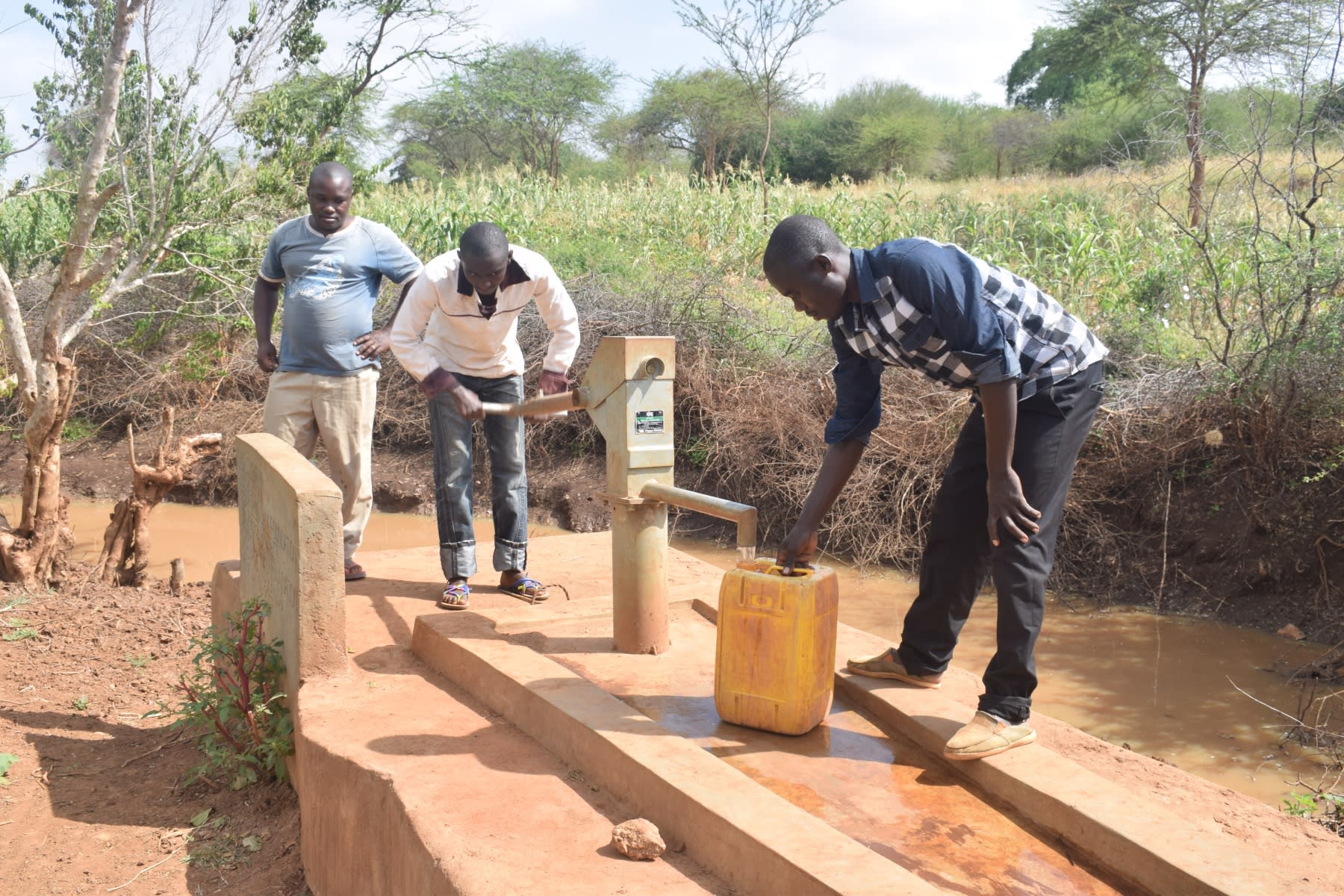This project is a part of our shared program with Africa Sand Dam Foundation. Our team is pleased to directly share the below report (edited for clarity, as needed).
Welcome to the Community
The Syakama Self-Help Group was formed in 2015, and now has 34 members. The members come from three different villages. The motivation for their coming together is to tackle water insecurity issues within the three villages.
As of last year, the average age of group members is 42. Some members have started “Zero Grazing” (dairy farming) as a means of income. Without sufficient access to water, this activity is bound to fail despite heavy investments during startup. After discussions with members, we learned they have a strong belief that investing in water projects like this shallow well and other sand dams will enable them to solve the water crisis; a huge burden which their parents also had to endure throughout their lives. With water nearby, the members plan to invest in initiatives such as farming and tree-planting, which have great potential to improve living standards.
The self-help group approached ASDF for support in constructing another sand dam and shallow well further down River Miseke. The first system was built last year in Kavumbu, and now they'd like to increase water access in Syakama.
Water Situation
The first sand dam and well system were built in a location along the riverbed that was closest to a portion of group members. However, there are still members who live further down the river who must spend a huge portion of their day fetching water. To cut down on trips to the first hand-dug well, these far-away group members load up their donkeys to carry as many water containers as possible.
Sanitation Situation
Though from different villages, all of the self-help group members were trained together last year (click here to see that). Revisiting a year later has encouraged our trainers; it is apparent that members taught their families valuable hygiene and sanitation practices, and shared those with their neighbors.
All Syakama households still have their own pit latrines. 100% of these families also have dedicated bathing rooms for practicing personal hygiene. Every home has a dish rack and clothesline for drying things up off the ground, and over 3/4 of families have a hand-washing station.
As we visited these families, they were enthusiastic to receive us and show us their homes.
Plans: Hygiene and Sanitation Review
Because of the obvious positive uptake of knowledge shared last year, we've decided to hold review sessions for two days. Our trainers will continue to stress the importance of treating water before consuming it. We will also strengthen the committee in charge of water point management and maintenance, equipping them with the skills to ensure there's clean water for generations to come.
The group members who have not yet constructed a hand-washing station will be reminded of its importance in preventing communicable diseases.
Plans: Sand Dam
The Syakama Self-Help Group has decided that this second sand dam and hand-dug well system should be constructed further down the river in Syakama. As of now, folks living in Syakama Village have to walk to the first system in Kavumbu.
The group members worked with our staff to find the best place along the riverbed where it is convenient for locals and viable for construction. We estimate that the sand dam will be 37.4 meters long and 3.3 meters high.
As the sand dam matures, it will build up sand and naturally filter the river’s water and the rainwater supplied during the rainy season.
It will raise the water table and transform the land, making it fertile for farming. With the ongoing installation of a hand-dug well (click here to view that project), water from this sand dam will be safely used for drinking.

 Sand Dam
Sand Dam
 Rehabilitation Project
Rehabilitation Project






















